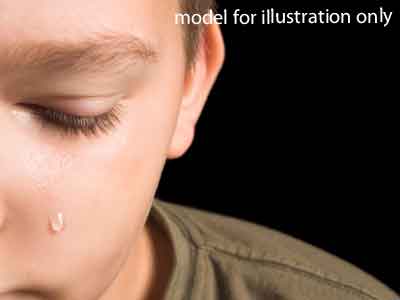Dallas Morning News columnist Steve Blow interviewed SMU Psychology Professor Alan Brown about what caused Texas Gov. Rick Perry during a recent GOP debate to forget which federal departments he wanted to abolish. Blow’s article, “SMU professor studies mental lapses like Perry’s,” was published Nov. 16.
Brown has studied the phenomenon and has written a book about “Tip of the Tongue” experiences.
Brown’s research primarily involves how people store and retrieve information about the real world, and the manner in which these processes fail us, including the tip of the tongue experience, where one is momentarily stymied in accessing well-stored knowledge.
Another such phenomenon is the false positive recognition experience of déjà vu, where a present experience seems subjectively familiar when one knows that it is objectively new. Brown is currently extending the TOT research to identify the factors underlying repeated TOTs, and whether these change in frequency with age.
EXCERPT:
By Steve Blow
Dallas Morning News
Now that the politics of Rick Perry’s brain freeze have been thoroughly analyzed, let’s look at the psychology of it.We happen to have an authority on the subject in our own backyard. In fact, Southern Methodist University psychology professor Alan Brown has just written an entire book on this all-too-familiar phenomenon.
The Tip of the Tongue State, his academic treatise is called.
Researchers refer to the mental lapses as TOTs. But for now, a new name has taken hold — “a Perry moment.”
The governor’s predicament was painful to watch because we’ve all been there. In fact, I was there just last Friday night in front of a huge ballroom full of people. And Professor Brown helped me understand a little more of what happened to me and to the governor.
In my case, I was emceeing the Center for Nonprofit Management’s big annual dinner and awards program. I wanted to begin on that Veterans Day by honoring the veterans in attendance and also anyone on active duty or …
Or …
The word “recruit” had popped into my head. But I knew that wasn’t the word I wanted. Related, but not right. So I flailed around, stammering and stuttering. It was ugly.
Finally, someone at a table down front helped me out. “Reserve,” a voice said from the darkness.
Of course! Hallelujah! Reserve duty — that’s the plain-as-day word I was looking for. And Brown points out that “recruit” begins just like “reserve,” which is a common factor in tip-of-the-tongue mishaps.
We seem to blank out worst when a similar word blocks the way. “Some researchers have called them ‘ugly stepsister words,’” Brown said. “They keep the prince from finding Cinderella.”
Follow SMUResearch.com on Twitter.
For more information, www.smuresearch.com.
SMU is a nationally ranked private university in Dallas founded 100 years ago. Today, SMU enrolls nearly 11,000 students who benefit from the academic opportunities and international reach of seven degree-granting schools. For more information see www.smu.edu.
SMU has an uplink facility located on campus for live TV, radio, or online interviews. To speak with an SMU expert or book an SMU guest in the studio, call SMU News & Communications at 214-768-7650.

 SMU to help solve dangerous refugee water issues
SMU to help solve dangerous refugee water issues Anthropology researcher to study human-fire-climate interactions
Anthropology researcher to study human-fire-climate interactions






 A new study by research psychologists
A new study by research psychologists  When a flash was followed by its identical symbol, participants were five times more likely to say they had seen that symbol sometime before the experiment.
When a flash was followed by its identical symbol, participants were five times more likely to say they had seen that symbol sometime before the experiment. It is a discussion that seems familiar. But new findings show that people who travel frequently are more likely to experience déjà vu. Political liberals report more déjà vu experiences than conservatives do. And déjà vu becomes less common as people grow older.
It is a discussion that seems familiar. But new findings show that people who travel frequently are more likely to experience déjà vu. Political liberals report more déjà vu experiences than conservatives do. And déjà vu becomes less common as people grow older.